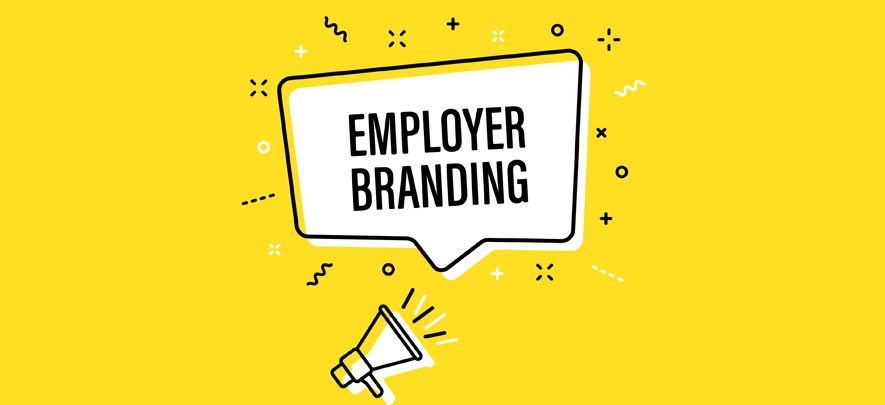Employer branding: Cost or investment?

Leadership & Management
257 week ago — 6 min read
Certain developments in the economic environment surrounding startups and SMEs are interesting to note. While the system is attempting to create an environment conducive for entrepreneurship and certain steps in the direction may give benefits over a period of time, it is apparent that Indian founders still need to develop a broader vision.
The case of Tiny Owl, Housing.com etc. may be viewed from multiple perspectives. They may have been ventures which could have done well and in some cases indeed did very well, but a remark of one now separated employee sums it up all "Henceforth I will be very wary of joining a startup as it is too risky.”
This statement which I read made me to pen down my thoughts.
Will therefore the biggest challenge of startups become even more complex— the challenge of hiring talent. This experience and the amount of adverse publicity it has brought for startups will surely make hiring critical to operate and top talent extremely difficult to attract. With investors also having got a taste of passionate, bare knuckled gusto spirit of a founder, the caution before action thought will also loom large in their minds.
Post this disruption when the new norm emerges, employers with highest employer brand equity will be able to attract good talent very easily and with less cost of hiring.
Net result—it becomes a situation where we on one side are talking about skilled people and talent attraction being the most critical aspects of a startup, whereas on the other side the founders are doing precious little to ensure that specialists are available to proactively and scientifically handle such sensitive issues. Separation is a reality, however the collateral damage, control of brand image, employee belief etc. could have been handled in a much better manner. In my opinion it is an HR failure, if at all there was a HR department. The reasons are:
- It was the role of the HR leader to wise counsel the founder on the number of minimum strength needed basis the study of business trends and plan hiring accordingly.
- Founder should have been advised and provided execution support to handle such an outburst. It was a mistake to face irate employees as the entrepreneurial temperament is a highly passionate one and a recipe for possible conflict and bad blood. A sensible HR person would have ensured the situation was managed and better dealt with.
The question therefore is why is it that founders of startups invest the least in HR leadership and rely on execution and transactional HR limited to hiring, filing, payroll, attendance—missing out on the must have transformational aspects of talent attraction, ambition management, employer branding etc.
It is critical to realise the transformational role of HR in startups. It is an investment which has no substitute. The cost of losing your employer brand is worse than an ineffective consumer or product brand.
My thought it is partly caused from both sides, as HR folks in order to show proof of delivery put on table hiring, administrative, routine tasks are showcased as value added delivery and it appeals to the founder as the traditional focus has been on these areas.
As founders of startups the owner tends to take on the mantle of ‘people management’ forgetting the difference that HR management is a resource management function with super specialised skill sets to manage talent of 21st century as against being a humane, approachable and accessible business leader.
Perhaps the Tiny Owl founder had all noble intentions to face it up himself, but this experience will perhaps educate him that it could have been better dealt with by a professional at chair.
As we see positive sentiments and an inclusive environment of entrepreneurship it is critical to realise the transformational role of HR in startups. It is an investment which has no substitute. The cost of losing your employer brand is worse than an ineffective consumer or product brand. In the case of a consumer or product brand modifications will bring it on course, but people live the experience and worse talk about it to many prospective employees thus creating severe high resistance towards the affected brand.
At our firm we have seen the benefits clients have had investing in transformational solutions. Hopefully with these case studies the points to ponder shall evolve.
Can there be any cost saved at the expense of employer branding? Will this cost saved be tenable, sustainable? What is the cost of employer branding? Post this disruption when the new norm emerges, employers with highest employer brand equity will be able to attract good talent very easily and with less cost of hiring. Hence it is very important to focus on building an employer brand.
Also read: New paradigm for people and business
Image source: shutterstock.com
To explore business opportunities, link with me by clicking on the 'Connect' button on my eBiz Card.
Disclaimer: The views and opinions expressed in this article are those of the author and do not necessarily reflect the views, official policy or position of GlobalLinker.
Posted by
Debashish DasLeadership and Business Growth Coach with over 20 years of experience in coaching and consulting. Specialist in HR, Strategy, Business Growth for SME and Corporates. As a coach...
View Debashish 's profile
Other articles written by Debashish Das
Annual Operating Plan: Approach to budget allocation
219 week ago
Most read this week
Trending
Ecommerce 7 days ago













Comments
Share this content
Please login or Register to join the discussion